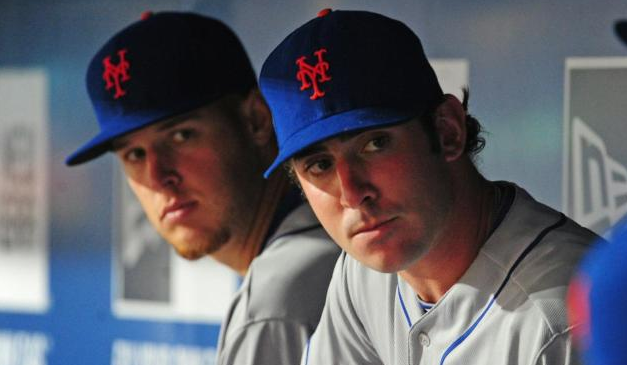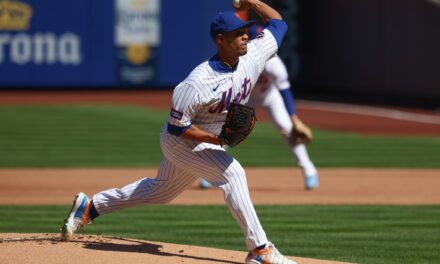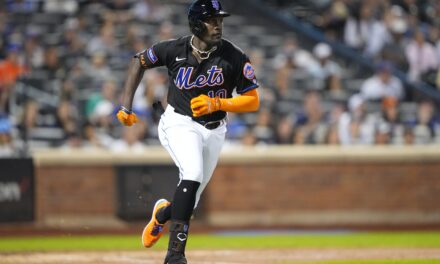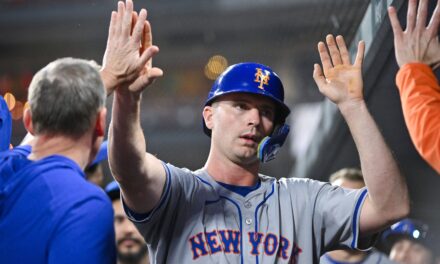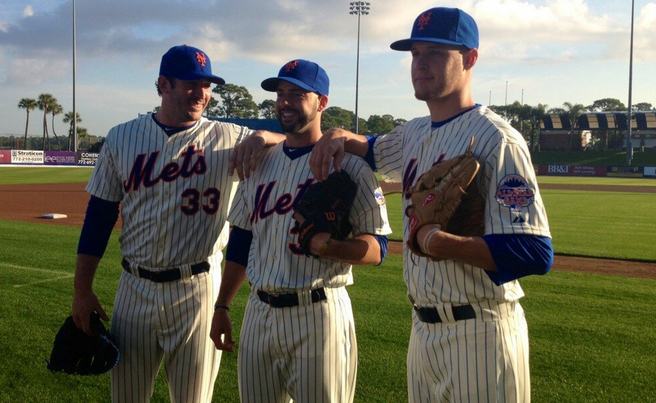
Traditions are interesting. They place events from the here and now in a historical context so that we may gain some insight or understanding about what the events mean. My parents, for instance, are from two adjacent towns on an island in the Mediterranean where Easter is stacked with strange traditions that culminate in the Easter Eve midnight massacring of each others’ church domes with tens of thousands of homemade rockets.
The following day they will count the number of broken roof tiles to determine who won the “battle.” The Ottomans tried to suppress the tradition as its organizational structure (secret basement and backyard “rocket cohorts” composed of mostly young men) had a clear potential for more subversive purposes, but it persists to this day. Traditions are resilient that way.
The military, for those of you who’ve served in one of our four fine branches, is steeped in tradition. I remember how surprised I was to receive 4 full days of liberty following November 10th festivities celebrating the Marine Corps’ birthday. Everything from cadence to uniforms to the stories passed down to us about Tun Tavern and Belleau Wood and the Frozen Chosin, all served to indoctrinate us into the culture and history of what we’d become a part of.
In the end, traditions are a means. They speak to how we transfer critical information from one generation to the next, a kind of generational mnemonic.
Baseball is loaded with tradition, perhaps more than any other sport, and for good reason. Generations in baseball are not like normal lifespan generations that last the 70 odd years most of us can expect to live. A generation in baseball doesn’t last very long. When we think baseball “careers” we tend to imagine the typically longer more successful careers that run anywhere from 12 to 16 years, but the reality is that the average baseball career is much shorter.
Back in 2007 Sam Roberts of The NY Times published a piece discussing longevity in baseball and cited a study that looked at 5,989 position players who began their careers between 1902 and 1993 and who played 33.272 years of major league baseball. They found that the average career for a rookie entering the majors is a measly 5.6 years. Now granted many rookies flame out and career norms for players for instance in their third year tend to be longer, but the fact remains, there is tremendous turnover in baseball. On any given team, if you stick around long enough the personnel will be largely different every 5 or 6 years. So tradition takes on an even greater role because it’s the one thing that remains constant generation after generation of players coming up from the minors.

The Mets have their own traditions, their own uniforms and stories passed down to them, their own sacred relics. Met tradition is rooted in the Miracle of 1969, and to a lesser degree the 1986 Championship season. Met tradition is entrenched in the successes of the past, and that success has been, and more than likely will be (should we ever be treated to it again), grounded in lights-out, shutdown, overpowering pitching. Tom Seaver, Jerry Koosman, Dwight Gooden and many other greats led our pitching heavy success stories. The lessons learned? We live and die by our pitching. To quote a Tony Stark line from Iron Man, “That’s how Dad did it, that’s how America does it, and it’s worked out pretty well so far.”
It is no surprise that tradition is a means to relay information that is heavily relied upon by military organizations. Building on previous success emboldens and prepares current generations with winning strategies, confidence, and important lessons. Even the church blasting rocket tradition in all likelihood had its organizational roots in any number of insurgencies against very real oppressors, and in the absence of these oppressors turned to more peaceful village rivalries with only a few annual blown off fingers as casualties.
The Marines instill their recruits with a sense of pride and “esprit de corps.” Camaraderie through mindless drill and the drudgery of boot camp and amazing stories of courage and sacrifice serving to produce remarkably cohesive units that function seamlessly under fire – with the ability to maintain morale under unbelievable hardship.
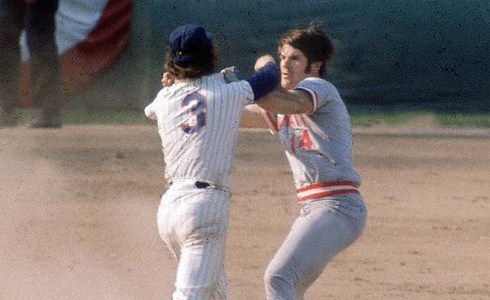
Traditions teach us who we are based on who we’ve been, they teach us how to conduct ourselves based on how we’ve conducted ourselves in the past. They are an integral part of organizational success and as such should never ever be ignored. To do so is to invite failure, as Mike Piazza did after Clemens threw the bat … That certainly wasn’t a Bud Harrelson (vs. Pete Rose) moment, or even a Ray Knight (vs Eric Davis) inspired trot to first … the Metropolitans traditionally have never shied away from a scrap, in fact they’ve often appeared to look for one.
The Mets of course play in the National League, and have always played their home games in pitchers’ havens.They were conceived during a pitching dominated NL “small ball” era and when you add Shea’s dimensions to their humble origins, you can see the where and why of our fine Met pitching tradition.
2014 is a pivotal season in this regard. The current generation of Mets is tasked with a monumental task — learning to win. What better way to do that than by looking at what has worked in the past? It’s a hard lesson, particularly after the horrendous failures of our recent history. Many fans are hesitant to embrace any inkling of success given so many losing seasons and point to a futile offense and shaky bullpen, but after last night’s 2 – 0 win against another NL franchise loaded with pitching and small ball success (the Cardinals of course), I feel compelled to point out that last night’s victory was as reminiscent of games from 1969 and 1973 as I’ve seen in a very very long time. The pace, the defense, the pitching, last night had it all, and that is significant.
Pitching and defense are in our blood… 2–0 games should be ingrained in the DNA of every Met prospect in every Met franchise throughout the minors. This is our template, our formula, our recipe. Embrace the stinginess and the tension Met fans, I’ll take a traditional 2–0 win any day over a 7–3 slugfest. We can put last night’s win in the books, and in historical context … 2 – 0 type games are how we roll. It’s a good sign folks, perhaps a harbinger … provided we can repeat the delivery.
Traditions are resilient, and I have to say there may even be something magical about them. There is a painful irony to the fact that 2006 ended tragically at the hands of a defense first backstop whose only home run vs. the Mets came in the post season, against a power laden Met team lacking its traditional pitching first make-up. Personally, I’ll take Wheeler, Harvey, Mejia, Syndergaard, and Montero going forward over any host of boppers and mashers.
Embrace the stinginess Met fans, embrace the tension!


